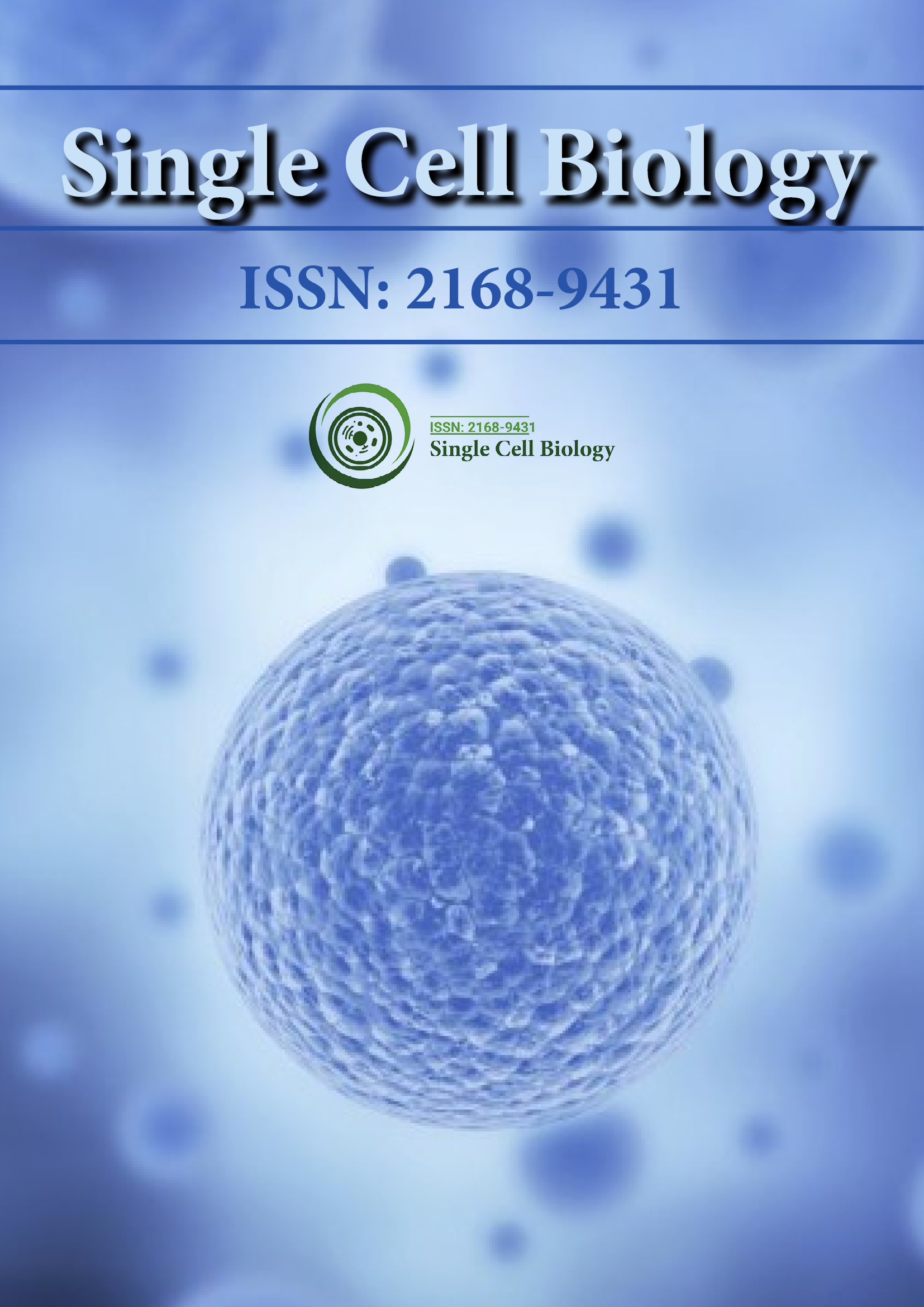Indexed In
- ResearchBible
- CiteFactor
- RefSeek
- Hamdard University
- EBSCO A-Z
- Publons
- Geneva Foundation for Medical Education and Research
- Euro Pub
- Google Scholar
Useful Links
Share This Page
Journal Flyer

Open Access Journals
- Agri and Aquaculture
- Biochemistry
- Bioinformatics & Systems Biology
- Business & Management
- Chemistry
- Clinical Sciences
- Engineering
- Food & Nutrition
- General Science
- Genetics & Molecular Biology
- Immunology & Microbiology
- Medical Sciences
- Neuroscience & Psychology
- Nursing & Health Care
- Pharmaceutical Sciences
Perspective - (2023) Volume 12, Issue 3
The Intricacies of Single-Cell Biology: A Comprehensive Exploration
Thomas Schleid*Received: 04-Sep-2023, Manuscript No. SCPM-23-23436; Editor assigned: 07-Sep-2023, Pre QC No. SCPM-23-23436 (PQ); Reviewed: 21-Sep-2023, QC No. SCPM-23-23436; Revised: 28-Sep-2023, Manuscript No. SCPM-23-23436 (R); Published: 05-Oct-2023, DOI: 10.35248/2168-9431.23.12.065
Description
Single-cell biology has emerged as a groundbreaking field, revolutionizing our understanding of cellular heterogeneity and providing unprecedented insights into the complex dynamics of biological systems. The advent of high-throughput technologies has enabled researchers to delve into the intricacies of individual cells, revealing a quantity of information that was previously obscured by population-based analyses. This article aims to explore the recent advancements in single-cell biology, highlighting its significance in various domains of research and elucidating on the potential applications that lie ahead.
The technological revolution
The technological landscape of single-cell biology has witnessed a rapid evolution, with cutting-edge techniques allowing for the profiling of individual cells at unprecedented resolution. Singlecell RNA Sequencing (scRNA-seq) has been a fundamental in this revolution, enabling the dissection of gene expression patterns in individual cells within a heterogeneous population. This approach has not only revealed the existence of rare cell types but has also discovering the remarkable diversity within seemingly homogenous cell populations.
Beyond transcriptomics, single-cell multi-omics approaches have emerged, integrating genomics, epigenomics, proteomics, and metabolomics at the single-cell level. This holistic view of cellular function provides a comprehensive understanding of the molecular intricacies governing cellular behavior. As these technologies continue to advance, our ability to decipher the molecular landscape of individual cells becomes increasingly refined.
Applications in disease research
Single-cell biology has profound implications in understanding the molecular basis of diseases, giving new platform for diagnostics and therapeutic interventions. In cancer research, for instance, single-cell analyses have reveal the heterogeneity within tumors, leading to a paradigm shift from a populationcentric to a personalized approach. Identifying rare subpopulations of cells with distinct molecular profiles has introduce a way for targeted therapies personalized to the individual patient.
Neurological disorders, characterized by intricate cellular diversity, have also benefited from single-cell studies. Discovering the complexities of the brain at the single-cell level has provided insights into the etiology of conditions such as Alzheimer's and Parkinson's diseases. This newfound knowledge holds the prospective for the development of precise therapeutic strategies, addressing the specific cellular components implicated in these disorders.
Immune cell profiling
The immune system, a mosaic of diverse cell types working in concert, has been a focal point of single-cell studies. Profiling individual immune cells has uncovered their heterogeneity and dynamic responses to various stimuli. In infectious diseases, this approach has been instrumental in understanding how immune cells mount specific responses against pathogens. Moreover, in the context of autoimmune diseases, single-cell analyses have revealed aberrant immune cell populations, enlightening on the mechanisms underlying these conditions.
Developmental biology and stem cells
Single-cell biology has significantly advanced our understanding of embryonic development and stem cell differentiation. By scrutinizing individual cells during these processes, researchers have unveiled the molecular events orchestrating cell fate decisions. This knowledge has implications not only in developmental biology but also in regenerative medicine, where harnessing the power of stem cells for therapeutic purposes requires a detailed understanding of their behavior at the singlecell level.
Challenges and future scope
While single-cell biology has opened new frontiers, it is not without challenges. The sheer volume of data generated poses computational and analytical challenges, necessitating the development of advanced bioinformatics tools. Standardization of protocols and benchmarking of methodologies are crucial to ensure the reproducibility and comparability of results across studies.
Looking ahead, the integration of spatial information into single-cell analyses represents a frontier that holds immense potential. Techniques like spatial transcriptomics aim to preserve the spatial context of individual cells within tissues, providing a more holistic understanding of cellular interactions and microenvironmental influences.
Conclusion
In conclusion, the field of single-cell biology has undergone a remarkable transformation, offering unprecedented insights into the intricacies of cellular diversity and function. From discovering the fundamental of diseases to advancing our understanding of development and immunity. Single-cell studies have become an indispensable tool in the biologist's arsenal.
Citation: Schleid T(2023) The intricacies of single-cell biology: A comprehensive exploration. Single Cell Biol. 12:065.
Copyright: © 2023 Schleid T. This is an open-access article distributed under the terms of the Creative Commons Attribution License, which permits unrestricted use, distribution, and reproduction in any medium, provided the original author and source are credited.
